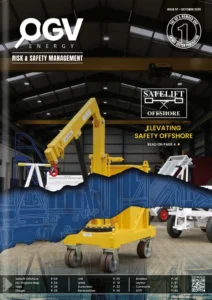Why framework agreements are fabulous
By Bryan Wilson and Caroline Sodersten
Earlier this year, the International Monetary Fund (IMF) commented on the improved growth of the Middle East oil and gas market, focusing on oil price recovery, and OPEC+ agreeing to extending oil production cuts. This was coupled with additional voluntary production cuts in Saudi Arabia. IMF also commented on subdued oil activity in the short term and a longer-term outlook of growth.
This longer-term outlook is supported by the recent announcement from the Abu Dhabi National Oil Company (ADNOC) that it has signed framework agreements worth in the region of $1billion for concept and Front-End Engineering and Design (FEED) Services for major projects across its value chain. These framework agreements, allocated across eight top-tier engineering contractors and with terms between 2021 and 2026, highlight ADNOC’s future planning for continued development in the region.
But why is entering into these type of framework agreements so beneficial for a national oil company, or indeed for any other operator or contractor?
Effecting Effective Efficiencies
The primary purpose of any framework agreement is to create efficiencies in the contracting lifecycle. And one advantage for any operator is building structure for a long-term relationship with a select group of contractors. The cornerstone of this structure will be terms that are beneficial to both parties at the time of contracting, with the operator entering into the framework without the need to commit to immediate work (unless required). At the same time, the contractor will have the comfort of early notice of scopes and anticipated timelines. All of this will thereby allow for efficient resource planning by both parties.
Furthermore, framework agreements will typically cover a larger scope of activities than discrete, individual contract awards. Also, securing pre-agreed terms and conditions with large and experienced contractors, rather than entering into a number of smaller value agreements, greatly reduces the duration of the tender negotiation process. This in turn will lead to a reduction in hours and costs for contract administration by both the operator and the contractor. This then allows contractors to offer more streamlined costs, giving the best value.
Crucially, the standardisation process of applying an overarching set of terms consistently to each call-off for work covered by the wider scope will help to maintain project timelines and delivery schedules, which will also assist in keeping costs under control.
Rewarding Performance
As well as achieving cost-efficient performance, awarding work under a framework agreement also allows for other key performance indicators to be standardised and managed throughout the contract lifecycle.
For the operator this may mean delivery of projects in a reduced timeframe, again reducing overall cost.
For the contractor there is an opportunity for milestone rewards that may not otherwise be available in a traditional single scope contract.
Utilising framework agreements also benefits the wider industry and economy, achieving improved performance in areas of employment, sustainable business investment and, where applicable, management of in-country investment. Operators and contractors who are able to identify future projects and workstreams and plan for them in advance are more likely to employ and invest in the market, leading to greater stability for the industry supply chain as a whole.
Therefore, while ad-hoc contracting allows greater flexibility, it invites greater risk of variable employment markets, supply chain price fluctuations, supplier instability, and less sustainable business relationships.
With an economic climate where fluctuations are a daily occurrence and an industry where a future of significant change is certain, framework agreements offer the opportunity to create stability, realise efficiencies and add a measure of hope for the future.
Read the latest issue of the OGV Energy magazine HERE.
Published: 25-11-2021














